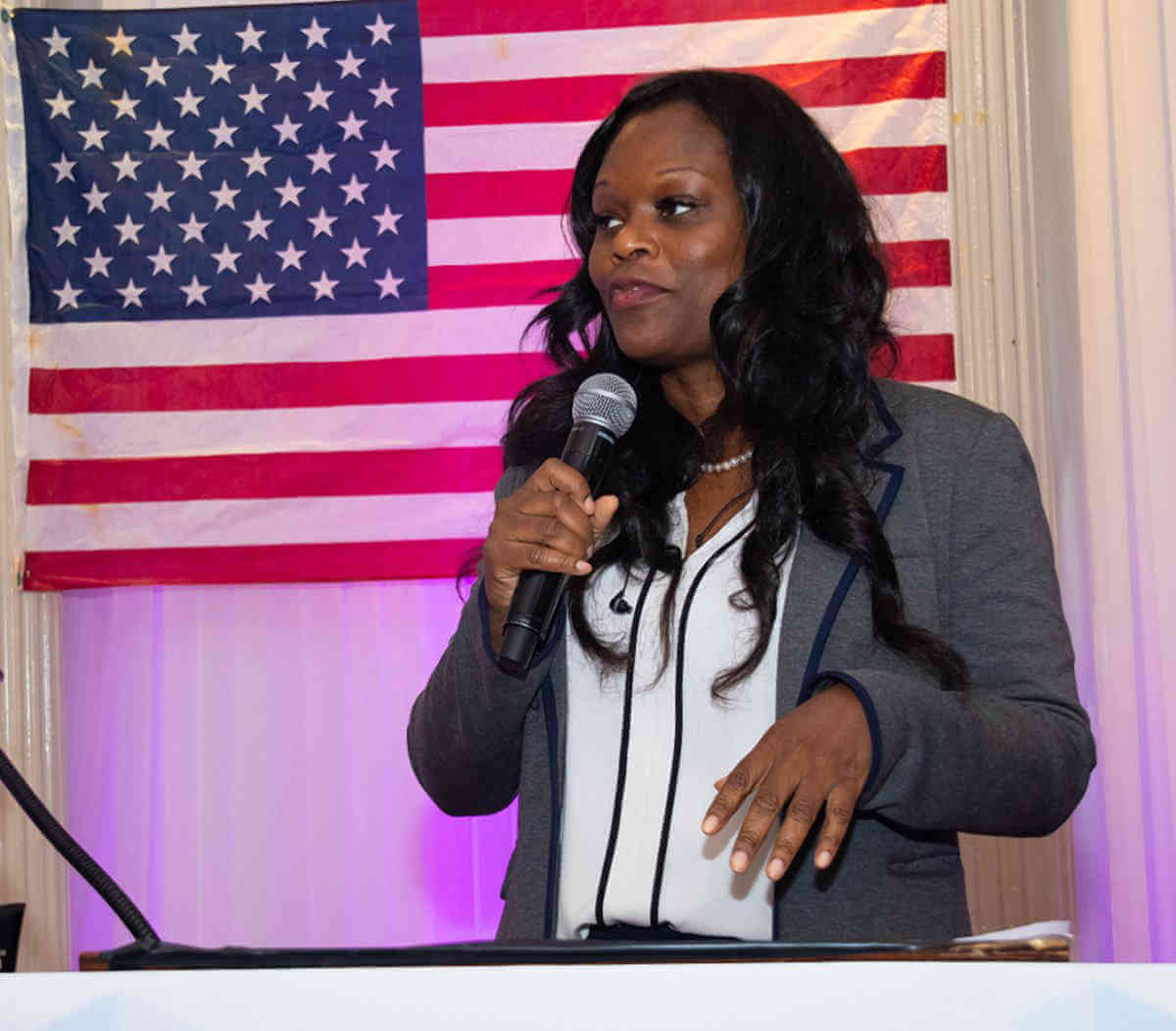Newly-elected chair of the Brooklyn Democratic Party Assemblywoman Rodneyse Bichotte has paid homage to National African American History Month, saying that, since 1976, the month of February has been a time to pay tribute to the activists and pioneers whose resilience and strength in the face of racial oppression helped shape the United States.
“National African American History Month allows us to commemorate the invaluable contributions that Black Americans have made throughout history, as well as recognize those still fighting against injustice,” said Bichotte, the Haitian American representative for the 42nd Assembly District in Brooklyn.
“As we celebrate the legacies of those who stood up against intolerance, let’s also remember to use their experiences and stories as a call to action and continue working toward a future where true equality is a reality for all,” she added.
Bichotte said National African American History Month provides the opportunity to not only reflect on the past but to learn from it.
She noted that this past August marked the 400th anniversary of the beginning of American slavery.
“For centuries, the ideal that ‘all men are created equal’ didn’t apply to hundreds of thousands of Americans due to the color of their skin,” she said. “While it’s difficult to look back at the bigotry and violence that have stained our country’s history, it’s within this somber reflection that we can truly honor the accomplishments of black Americans.”
From serving as an important stop on the Underground Railroad to its critical role in the civil rights movement, which continues today, Bichotte said New York State has always been at the center of the fight for justice and equality.
She noted that the state is home to many significant landmarks in African-American history, such as Weeksville, Brooklyn, one of the first free black communities in the United States; the African Burial Ground, the first national monument dedicated to Africans and African Americans; and the home of Harriet Tubman in Auburn.
As a prominent leader of the Underground Railroad, Bichotte said Tubman helped hundreds of slaves escape their captors and she embodies what it means to be a hero.
Bichotte also celebrated another trailblazing New Yorker, the late Caribbean American Congresswoman Shirley Chisholm, who was the first African-American woman to serve in the US Congress and the first female and African-American major-party candidate for president.
“Chisholm’s determination to make her voice heard, despite the obstacles in her way, helped push the fight for gender and racial equality forward,” Bichotte said. “Although her bid for the presidency was unsuccessful, it paved the way for others, including former President Barack Obama.”
Bichotte said it is important we also pay homage to the New York natives who used their creative minds and artistic talents to celebrate their Black heritage and enrich our culture.
“From the poetry of Langston Hughes to the words of Zora Neale Hurston and the music of Duke Ellington, these visionaries of the Harlem Renaissance inspired a new wave of artistic expression,” she said. “To this day, their work continues to instill hope and understanding in individuals from all walks of life.”
Decades later, Bichotte said James Baldwin built off their great work through his literary exploration of racial and social issues in America.
She noted that Baldwin is now known as one of the greatest contributors to American literature, “as his thought-provoking prose helped spark important conversations about topics such as interracial and LGBTQ relationships in an era when these subjects were swept under the rug.”
“These trailblazers refused to be silenced, and captured the experiences of Black Americans through their art, while creating a platform for all those who followed,” Bichotte said.
“As we celebrate National African American History Month and recognize the heroes who helped our nation progress, it’s also vital that we continue their work and do everything we can to combat the injustices that still impact our communities today,” she added.
The legislator said this begins with ensuring that the sacrifices and stories of Black Americans are no longer overlooked and, instead, “rightfully preserved for generations to come.”
To accomplish this, she said the Assembly Majority helped pass a law establishing the 400 Years of African-American History Commission to spread awareness about the history of slavery and the many contributions Black Americans have made to the US and New York State.
Bichotte said the panel, which will comprise individuals with an expertise in African-American art, culture and history, will hold events and educational activities throughout the state, “as a way of recognizing the arrival of the first enslaved Africans in America.”
From enacting laws that reform our criminal justice system to expanding opportunities for Black men and women through President Obama’s My Brother’s Keeper initiative and the Minority- and Women-Owned Business Enterprise program, she said the Assembly is working hard to ensure “each and every New Yorker has a fair shot at success.”
“This legislative session, we’ll continue fighting for laws that level the playing field and reaffirm our values of freedom and justice for all,” Bichotte said.
“This National African American History Month, I urge you all to become inspired by the leaders who fought tirelessly for equality and commit to making our state a more inclusive place to live,” she added. “Together, we can learn from the past and create a better future for our families.”



















